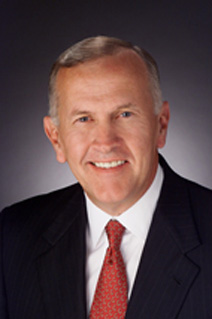Archive for the ‘university of chicago lab school’ tag
University of Chicago Laboratory Schools alumni gathering in San Francisco
Last evening, April 6, 2011, I attended a get together for friends and alumni of University of Chicago Laboratory Schools. There were people there that graduated from Lab in 1960. This was not a class specific gathering, so many years were represented among the approximately 75 guests. I was the only attendee from my class, sadly. The last time I attended one of these gatherings, my friend and classmate Harry Bims was there. Bims is a fellow tech entrepreneur, which gave us even more to talk about.
The venue for the event last evening was the elegant home of class of ’75 alum Pamela J. Joyner in San Francisco, California. Thank you to Joyner and her husband Fred Giuffrida for opening their home.
David W. Magill, the Director of Lab School, spent some time telling the group about the changes underway on campus. The most striking news is that since the University of Chicago is growing so rapidly, there are no longer enough spots at Lab School to accomodate the children of University professors.
University of Chicago recruits top professors by promising them that their kids can attend Lab School. Some children of new professors are now placed on the Lab School waiting list, which Magill said has not ingratiated him with the deans he has to deliver the bad news to. As a result, Lab School is physically increasing the size of its facilities. The University gave them an unused building close by the current Lab campus. This unused building is now being demolished. In its place will be a stunning early childhood campus for nursery school through 2nd grade students. The space on the primary campus now used for those students will be recaptured such that the primary campus will be able to accomodate increasing the high school class size by about 100 students. This will mean that all University affiliated students will be guaranteed a spot, which should make the department deans happy.
The Laboratory Schools contributed more to what I’ve accomplished in life than any other single contributor. I am grateful I am the son of a University of Chicago professor, which enabled me to attend the Lab Schools.
Magill and I talked at length. I had met him at the last such gathering I attended, about 6 years ago. I was pleased to learn from Magill that middle school students are taught cooking and must know how to cook a meal before they can graduate from 8th grade. This was not a requirement when I was a student there. The only hard requirement was that we all had to know how to swim.
When I heard there is no more general shop class, Magill said it was impossible to find a suitable replacement teacher after the long time teacher retired, so they abandoned the program. I expressed my extreme unhappiness about this sad condition. He said they have plans to add wood shop, which is a great start. But I remember vividly using a sheet metal brake to bend sheet metal into a tool box, which I still use. That’s not part of what I consider wood shop, but it was an important part of my education. The sheet metal brake had a material width capacity of 8 feet — something noteworthy to me now because the brake at TechShop can only accommodate 4 foot wide material, and I need a brake to bend 5 foot wide material, since my RTS bus conversion is built in 5 foot wide modules. It’s been a while since I was in middle school, but I can remember that sheet metal brake like I saw it last month.
Had I not had experience with quite a few different wood and metal working tools in middle school, I doubt I would now be a member of TechShop. I doubt I would have complete confidence I can create a super green bus conversion. I doubt I would be considering starting a green housing venture.
Teaching students to cook and to build things are critcial skills, and I hope Lab School expands its teaching in these areas as quickly as practical given its many other priorities.
Finally, I was fortunate to meet Beth Wittbrodt, Director of the Lab+ Campaign. The Lab+ Campaign is raising money for the early childhood campus that will allow the entire school to expand in size. Wittbrodt sought my opinion about how to reach out to alumni most effectively. I gave her my best thinking on the subject, and I found her to be quite impressive and thoughtful. Her first job after school was to personally author 1/3rd of an almanac several inches thick published by one of the most well known publishers in the country. She was 26.
In Japan, parents train their children to return lost property, even coins found on the pavement
Slate, the online newsmagazine originally funded in part by Microsoft, March 16, 2011 published an article about why there is so little looting now in Japan, following the March 11, 2011 9.0 earthquake and resulting devastating Tsunami.
I don’t know if the articles claims are true, and I won’t sumarize the article here, as I would prefer you give Slate the traffic and read the full article at their site, here: Stop, Thief! Thank You.
However, I do want to call your attention to the part of the article that says that in Japan parents train their children to return property that’s been lost by its owner. How? It takes a bit of effort, but I know it can work, and I recommend you do this with your children.
If a child finds a coin on the street, the parents will take the child and the coin to a police station and have the child turn in the coin to the police. If the owner doesn’t claim the coin within six months, the coin is returned to the child to keep. According to the article, parents and police take this training exercise very seriously.
How do I know it can work? Because my own parents did this with me when I was 9 years old. We were living in London, England at the time. One day I found a 5 pound banknote in the gutter. I think the pound was worth about USD $2.50 then, so this bill was worth about $12.50. But I was 9 years old, and my allowance at the time was probably 25 cents week, so this bill represented a fortune. I was elated to have found it!
My parents cooled my spirits when they told me I would have to turn it in the the police! I recall that we went to the police station and turned it over. Like in Japan, I was told I would get the money returned to me in six months if nobody claimed it. Of course, nobody claimed it, and half a year later my parents somehow got the money from the police and gave it to me.
This was a lesson I never forgot, and I love my parents for teaching me so well.
I know plenty of people who should know better that never learned this lesson, and will pocket anything of value they find. I know people who accepted overpayments from their employer without a word. This was not a few dollars, but thousands of dollars! I know people who would not send a bill back at a restaurant for revision upwards if an item was left off. I know people who will keep any change a cashier returns to them in excess of the proper amount due. I’m certain that everyone reading this knows people like this as well.
I remember when I was about 12 years old and was a student at University of Chicago Laboratory School. I’m told that this is one of the finest schools in the United States, and many of the students come from privileged backgrounds. The father of one of my classmates is a justice of the Supreme Court of the United States, for example. The mother of another classmate will probably win a Nobel Prize, my mother tells me. This student’s mother was featured in a long article about her life in The New Yorker magazine last year, to make the point she really has a shot at such an important prize.
In gym class, our lockers were arranged in alphabetical order, so my locker was near that of my friend Vincent Webster. One day he forgot to put his wallet in his locker and I found it. I returned it to Vincent or to the school authorities. Vincent got his wallet back and the whole class somehow learned I had done this. Believe it or not, I got teased and several of my classmates criticized me for not keeping it! I don’t think there were any poor students in my class. Many of my classmates have gone on to do important work in life. Nobody at this school ‘needed’ whatever could have been in Vincent’s wallet.
Never once did I consider keeping Vincent’s wallet. Vincent was my friend, but even if he were my enemy, I still would have returned his wallet.
My parents raised me well, and I am sure my honesty has been noticed and appreciated by the good people I’ve encountered in life. This is not to suggest I’ve never done anything I’m not pleased with in life, or have never made a decision that looks bad in retrospect. But I have really gone through life guided by an exceptionally strong moral compass.
If you cheat, stop, apologize and go back and make it up.




